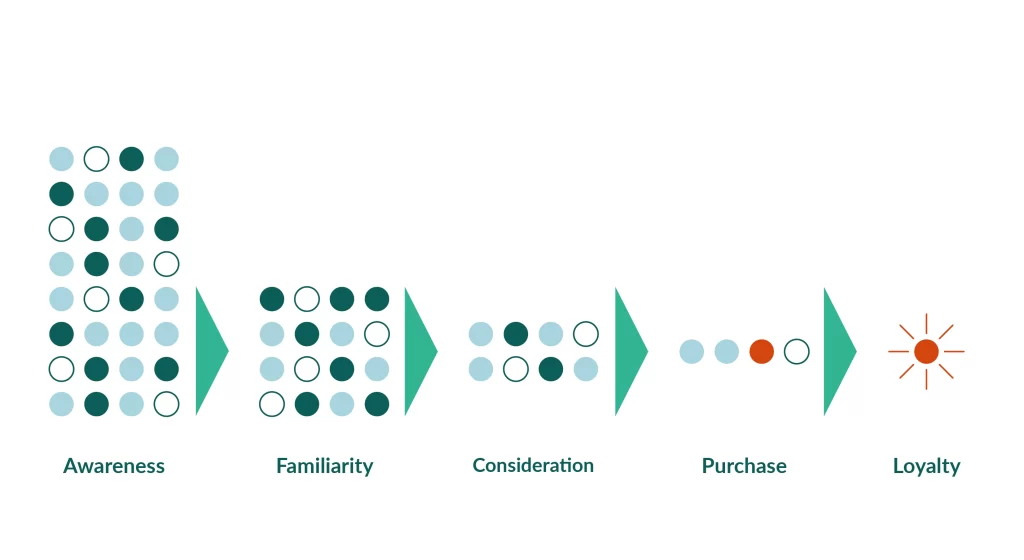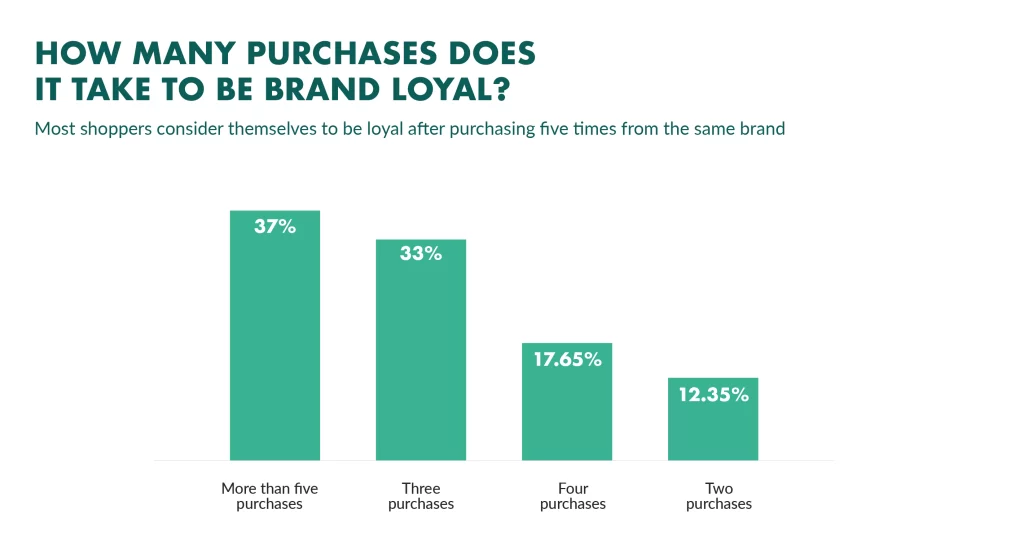A unique, high-quality product and exceptional customer service are critical to business success. However, building strong and long-lasting business relationships is equally important, as it helps foster customer loyalty and attracts new customers. To establish positive customer relationships, businesses need to invest time and resources in creating touchpoints for communication, building trust, and promoting mutual growth. These touchpoints can include responding promptly to customer inquiries, sending targeted email campaigns, and being friendly and professional in all customer interactions. Over time, these investments in business relationships can compound and help businesses achieve long-term success.
What Is Business Relations?
Business relations refer to the connections and interactions between entities in a business network, including relationships between stakeholders such as employers, employees, business partners, customers, suppliers, and government agencies. Business relations encompass all of the individuals and entities with which a business is connected or expects to have a connection, whether internal or external. Good communication, trust, and loyalty are crucial elements in establishing and maintaining a successful business relationship, which can lead to improved performance, job satisfaction, and competitive advantage.
What Is The Purpose of Business Relations?
The purpose of a business relationship is to establish and maintain a long-term connection with stakeholders in order to achieve common goals. It helps to improve cohesiveness, responsiveness, and collaboration in an organizational setting. Good business relationships foster creativity, motivation, and productivity, leading to a comfortable working environment with open communication and freedom of expression. Trust and loyalty are also enhanced, promoting stability and longevity in business relationships. The proper management of business relationships is essential for a successful business as it affects communication, interaction, and participation.
Why Business Relations Matters?

Business relationships are important because they can significantly impact a business's success. By building customer relationships, businesses can better understand their needs and preferences and offer a more personalized and enjoyable customer experience. This, in turn, can lead to increased customer satisfaction and loyalty, resulting in long-term success. The quality of the customer experience is a key factor in determining a business's success, as it has a major impact on customer satisfaction and loyalty. A recent study highlights the importance of providing a great end-to-end experience, including the product or service and the interactions and experiences a customer has with a business.
The Types of Business Relationship
There are various types of business relationships, including peer-to-peer, employee-to-manager, and employee-to-customer relationships. Each type of relationship has its own unique characteristics and dynamics, and it's important to understand them in order to effectively manage these relationships.
Peer-to-Peer Relationships
Peer-to-peer relationships refer to the relationships between individuals who have equal status and authority within an organization. These relationships are characterized by mutual respect, collaboration, and a shared goal of achieving the organization's objectives. Peer-to-peer relationships can positively impact the work environment, promoting teamwork, job satisfaction, and a sense of community among employees. They also provide opportunities for individuals to learn from each other, share ideas, and offer support. Effective peer-to-peer relationships can contribute to the success of an organization by fostering a positive work culture and improving collaboration and communication among employees.
Employee-to-Manager Relationships
Employee-to-manager relationships refer to the relationships between employees and their managers in an organizational setting. This type of relationship is usually more formal and hierarchical, with the manager overseeing the employees' work and providing guidance, direction, and feedback.
In this relationship, the manager is responsible for setting goals, delegating tasks, and providing support to the employees to help them meet the expectations and standards of the organization. On the other hand, employees are expected to follow the instructions and guidance provided by the manager and contribute to the organization's success.
Employee-to-manager relationships should be built on trust, open communication, and mutual respect, which can positively impact the work environment and employee job satisfaction. Effective employee-to-manager relationships can also increase productivity, better performance, and higher employee job satisfaction.
Employee-to-Customer Relationships
Employee-to-customer relationships refer to the interactions between employees and customers in a business setting. These relationships are critical to the success of a business, as they determine the quality of the customer experience and can significantly impact customer satisfaction and loyalty.
In this relationship, employees are responsible for meeting the needs and expectations of the customers, answering their questions, and resolving any issues that may arise. Good employee-to-customer relationships are characterized by open communication, active listening, and a focus on meeting the customers' needs.
Employees skilled in building and maintaining positive customer relationships can help increase customer satisfaction, loyalty, and advocacy, leading to increased sales and profits for the business. On the other hand, negative experiences with employees can lead to dissatisfaction and loss of business. Thus, businesses need to train their employees in customer service and relationship-building skills to ensure a positive customer experience.
Understanding the different types of business relationships and their dynamics is key to establishing successful and productive relationships.
How Business Relations Works?

A business's network of relationships includes a wide range of individuals and organizations, including customers, vendors, sales leads, potential customers, banks, stockbrokers, the media, service providers, and government agencies that are involved in or can impact its operations. Building and maintaining strong relationships with these stakeholders is essential for a business's success as they involve all parties involved in the business process. Good business relations can increase customer awareness, customer retention, and collaboration within the supply chain, all of which can contribute to the overall success of a business.
By developing positive connections with customers, vendors, partners, and other stakeholders, businesses can improve communication, increase efficiency, and create opportunities for growth and expansion. Additionally, strong business relationships can help companies to build trust and credibility, which can be critical in securing funding, building partnerships, and overcoming challenges.
Therefore, it's important for companies to be intentional and strategic about building and maintaining their business relationships. Whether it's through networking, customer engagement, or collaboration with partners, companies that focus on building strong relationships are more likely to succeed in the long run.
The Benefits of Business Relations
Business relations play a critical role in determining a company's success. They encompass all the individuals and entities with which a business is connected or expects to connect. Strong business relations promote trust, loyalty, and effective communication, which in turn can lead to increased customer satisfaction, employee motivation, and collaboration in the supply chain. Trust is important in fostering employee satisfaction, cooperation, motivation, and innovation. Loyalty helps companies form strong and lasting relationships with employees and customers, who will provide high-quality services and products in return. Good communication is essential for managing and optimizing internal and external business relations. It can facilitate and improve planning, projects, and policymaking. Establishing effective communication protocols early on in a company's development can be beneficial for the company's long-term success.
Strong business relations create a competitive advantage, while weak relations can lead to negative outcomes, including unhappy employees, dissatisfied customers, negative reputations, and limited growth. Therefore, cultivating and maintaining strong and positive business relationships should be a top priority for all businesses in order to be successful in the long term.
Develop Business Relations
Here are some effective methods for cultivating business relationships:
Networking
Networking is another important method for building business relationships. It involves meeting people in your industry and forming connections that can be beneficial for your business in the long run. Networking events like trade shows, conferences, and professional meetups are great opportunities to meet new people and build relationships. Additionally, online professional networks like LinkedIn are also a great way to connect with industry professionals and make new business contacts.
Giving Away Free Sample
Giving away free samples can be an effective way to build business relationships and attract new clients. By providing a sample of your work, you give potential customers and partners a chance to see the quality of your products or services. This can help establish trust and credibility, making it more likely that they will consider working with you in the future.
In addition to giving away free samples, Roger Wood suggests leveraging social media to connect with people in the industry. By joining Facebook groups related to the industry, you can network with others and share your knowledge and experience. However, remember that these groups should not be treated as free advertising platforms. Instead, focus on being helpful and offering value to others first.
Social Media Usage
Social media should not be utilized solely as a means of advertising yourself. This advice also applies when using social media for customer service and other efforts aimed at establishing relationships. According to Paine, many businesses make the mistake of trying to sell their products or services directly on social media while neglecting the social aspect, not focusing on their audience enough, and not being consistent in their approach.
Instead of regarding social media as a tool for passive marketing where advertisements are sporadically distributed, and communication is one-sided, it should be viewed as an opportunity to connect with your target audience. Customers have come to expect a high level of interaction from businesses on social media. For instance, they frequently mention businesses on Twitter to express appreciation or to voice complaints about poor customer service.
By using social media, businesses can interact with their customers in real time instead of waiting for them to make contact through more traditional channels.
Building a Personal Connection
People do business with people they like, so building a personal connection with your customers is important. This can involve finding common ground, making small talk, and actively listening to their needs and concerns. It’s also important to be genuine, authentic, and honest in your interactions. A personal connection with customers can help to build trust and loyalty, which are key to nurturing long-term business relationships.
Providing Quality Customer Service
Providing excellent customer service is critical to building strong business relationships. This involves being responsive to customer inquiries, addressing their concerns, and offering solutions to their problems. Providing quality customer service can help to build trust and credibility, which are essential for nurturing long-term business relationships. Additionally, positive word-of-mouth from satisfied customers can also help to attract new customers and build your business's reputation.
Resolving Disagreements
It is important to have a clear understanding of the issues at hand and a goal for the resolution. Preparation and research can help ensure that both parties have a good understanding of the facts and can focus on finding a mutually agreeable solution.
Having a mediator present can also be helpful in resolving disputes. Mediators are neutral third-party individuals who can facilitate discussions and help the parties reach a resolution. If a resolution cannot be reached through direct communication or mediation, the parties may choose to seek legal assistance or pursue alternative dispute resolution methods such as arbitration or binding mediation.
Ultimately, the goal should be to resolve the dispute in a fair and mutually acceptable manner while maintaining good business relationships and avoiding future conflicts.
Conclusion
Business relations refer to the connections and interactions between entities in a business network. These relationships are vital for the success of a business as they involve all parties involved in the business process, including customers, employees, business partners, suppliers, and government agencies. Maintaining strong business relations helps to build trust and create positive customer experiences, leading to customer retention and collaboration within the supply chain. Companies that prioritize building and nurturing these relationships tend to be more successful and achieve a competitive advantage over those that ignore them. Business relations should be managed effectively to ensure stability and longevity, promoting communication, interaction, and organizational participation.
References
Definition of Business Relations
The Purpose and Types of Business Relations






